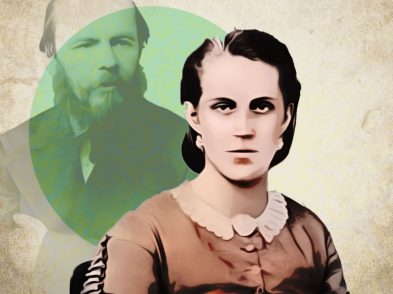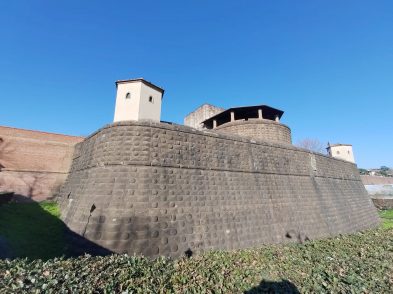Other Italians call them maledetti toscani (‘cursed
Tuscans’) for their quick intelligence, sharp tongues and biting wits. One
Tuscan who fit this description perfectly was Indro Montanelli, probably the
most influential Italian journalist of his time. A prolific writer, he also
penned numerous books, including innovative histories such as La Storia
d’Italia (‘The History of Italy’).
Very tall, thin and blond, Montanelli combined a
difficult and gruffly undiplomatic character with a distinctive and clear-cut
style of writing, so unlike the pompous prose of many of his peers. This made
him very popular with readers but less so with some of his employers. In fact,
in October 1973, he was sacked from national daily Corriere della Sera, where he had worked for nearly 40 years, when he made it known that he
thought that the paper was moving politically too far to the left. In response,
1974, he and Enzo Bettiza founded Il Giornale, a more conservative,
right-wing newspaper. For what they considered his reactionary opinions, the
Red Brigades knee-capped him in 1977.
Nonetheless, he remained true to
his convictions even when his soon-to-be former friend, Silvio Berlusconi, who
owned Il Giornale, ran for prime minister for the first time as leader
of Forza Italia. As the paper’s editor, Montanelli refused to bow to pressure
and endorse Berlusconi’s election. Instead, he resigned, and in 1994 he
launched a short-lived rival newspaper called La Voce. Despite being
staunchly anti-Communist, Montanelli remained, for the rest of his life, one of
Berlusconi’s most ardent and outspoken opponents.
A true Tuscan, Montanelli was
born in Fucecchio near Florence on April 22, 1909. After graduating in law at
the University of Florence, he continued his studies in Grenoble and at the
Sorbonne. He discovered his vocation as a journalist in France in 1934, when he
began working as a crime reporter for Paris soir. After acting as
foreign correspondent in Norway and Canada, he left Paris soir and
joined the United Press in New York.
When Mussolini, with whom Montanelli sympathised at the
time, declared war on Abyssinia, he left the United Press and voluntarily
enlisted in the army. However, he rapidly became disillusioned by the fascist
dream of empire and by what he saw there, describing it as Italy’s ‘Far West’.
On returning home, he joined the Messaggero newspaper as a foreign correspondent and was sent to Spain to cover its civil
war. He ran afoul of official fascist propaganda by failing, in an article, to
glorify the deeds of the Italian contingent fighting with Franco’s troops. As a
result, he was repatriated, expelled from the Fascist party, struck off the journalists’
roll and put on trial over it, although he was never convicted.
In 1938, Montanelli became director of the Italian
Institute of Culture in Tallinn, Estonia and a university lecturer there.
Although still prohibited by the Fascist government from working as a
journalist, he ‘collaborated’ with Corriere della Sera as a foreign
correspondent from Estonia and Albania, after Italy had annexed it.
At the beginning of World War II,
Montanelli reported from Nazi Germany, where he even managed to interview Hiltler.
He went on to cover events as they unfolded during what was known as the Winter
War in Finland and in Norway. The death and destruction he witnessed in the
Balkans together with débâcle of Italy’s invasion of Greece, led him, towards
the end of the war, to join the Partito d’Azione, a partisan group fighting to
overthrow fascism. He was arrested by the Germans for conspiring against
Mussolini, tried and sentenced to death. After 10 months in prison, he managed
to escape and fled to Switzerland.
With the war over, he returned to Corriere della Sera. The paper sent him to Budapest in 1956 and to Prague in 1968, where he
starkly chronicled the ill-fated uprisings against the Stalinistic regimes.
In 1974, he married a fellow
journalist, Colette Rosselli, who, under the name of Donna Letizia, wrote a
column devoted to etiquette for the magazines Grazie and Gente.
She died in March 1996. They had no children.
From the time La Voce folded until just
before his death, Montanelli wrote a very successful daily column in Corriere
della Sera called ‘La Stanza di Montanelli’ (‘Montanelli’s Room’) in which
he answered readers’ letters. A Tuscan to the end, when he died, aged 92, in
Milan on July 22, 2002, in accordance with his wishes, he was buried in Fucecchio,
alongside his mother.







